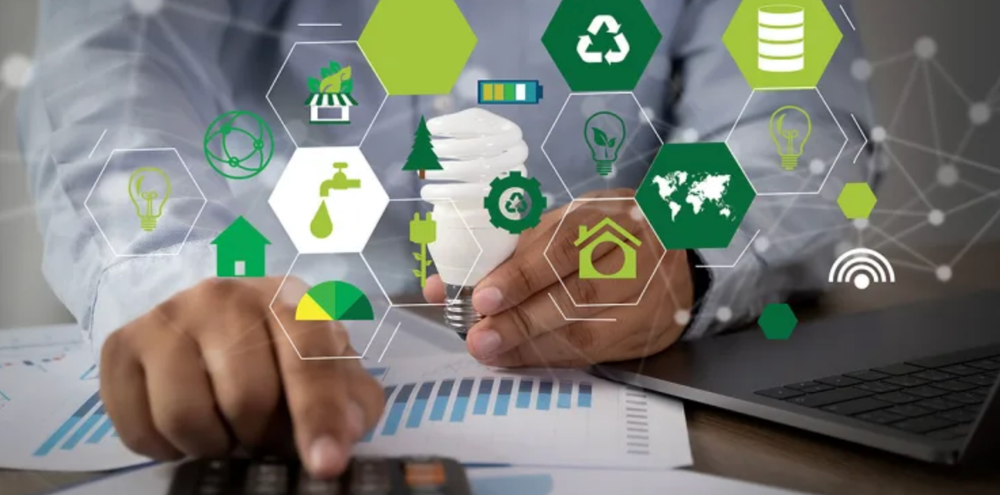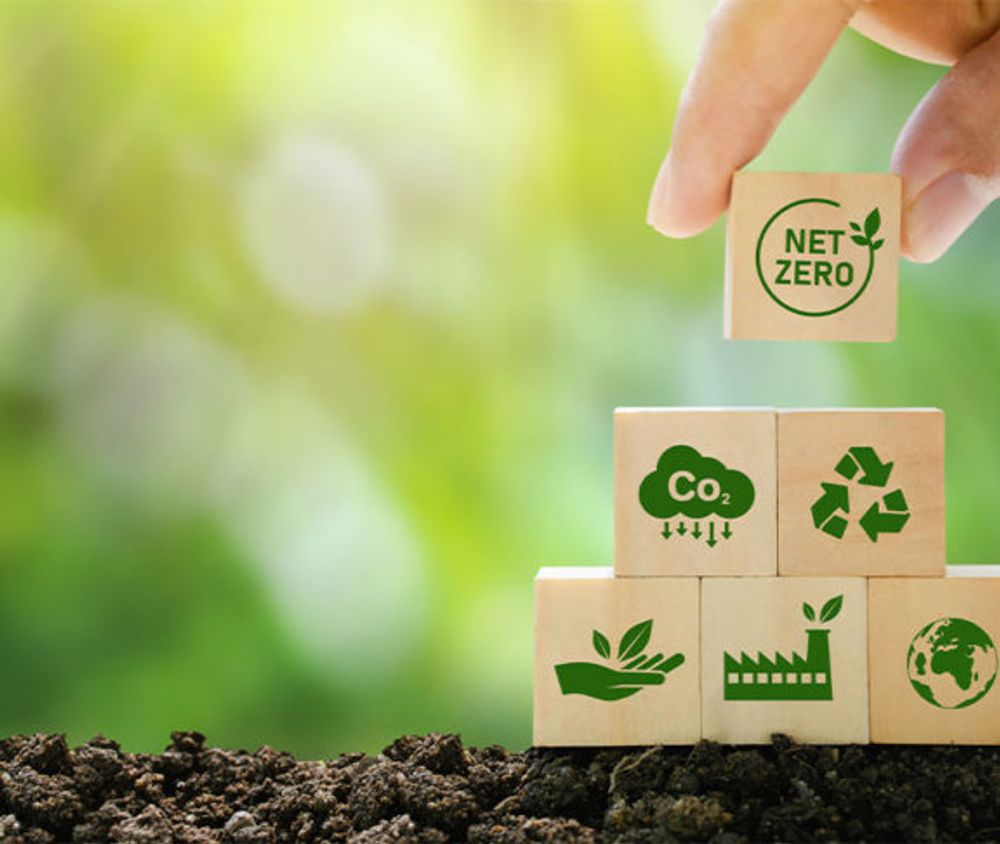Putting in a place an effective sustainability strategy is far easier said than done. Jeremy Rockett hopes The Sustainability Partnership can be a helping hand along the way.
Here’s a question for you. What’s the difference between Scope 1, 2 or 3 carbon emissions? Do you even know what a ‘Scope’ is, never mind the fact there are three of them, or what they do.
That, though, is the fundamental question that drinks, retail and hospitality businesses serious about tackling sustainability will have to answer if they are to get anywhere near reaching any targets they might set for their company, never mind the suppliers and supply chain that support them.
Wanting to be sustainable and taking the right steps to become sustainable is a long journey for any business to take. No matter how environmentally conscious you might have been in the past. Just getting your head around the jargon and terminology is like learning a new language.
It’s a journey that drinks industry stalwart, Jeremy Rockett, has embarked on in the hope of gaining the experience and knowledge to help others plot their way through the sustainability maze.
Rockett will be known to many in the trade for his time at a number of major drinks companies – from Gonzalez Byass, Marblehead, to most recently Craftwork, the premium spirits distributor. He knows the issues that businesses, big and small, will face when deciding just how seriously they want to take sustainability. The biggest stumbling block? Where to start?
He hopes his new The Sustainability Partnership consultancy business can answer that question and get companies on the sustainability trail.
Learning process

Jeremy Rockett believes he can offer practical industry driven support for businesses looking to make the right steps to be more sustainable but are not sure what is the right approach for their company
He admits he is learning himself every day about what the right steps actually are, and does not have all the answers. Which is where the “Partnership” element of the business comes in. For this is a consultancy business that is very much the sum of its parts. Whilst Rockett can help in some areas, he is now building a team of experts who can be called upon to offer advice and support as and when a business might need it.
“I am talking to people across the industry who have other skills to me. That way we can pull together a team of people who can both work together and on their own, who can all offer companies different skills,” he explains.
Business partner
The Sustainability Partnership also wants be seen as a potential business partner to work with in areas other than calculating your carbon footprint. It might be around communications advice, marketing support, packaging and logistics help, technical support, finance, accounting and putting together business reports, he says. “That is why we have called it a ‘Partnership’. Everyone has a say.”
“There are big management consultancies out there doing this for big companies. We want to offer a service for other businesses too.”
He adds: “It’s about sharing best practice and the skills sets we have around sustainability but also around running a better business too.”
Rockett says the idea for the Sustainability Partnership came during his time at Craftwork where it was constantly being asked by its customers what it was doing to tackle sustainability.
“But we would ask them what do they even mean by sustainability?” he says. “Does it mean how we are handing our waste, what we are doing with our energy supplier? How many companies are out there that don’t know what to do about sustainability, because they don’t know where to start?”
Or more to the point the hundreds of business that don’t employ 250 people, or have a turnover of £35m or more, that and are now mandated by the government to have their own sustainability strategy. Below that level you are basically left to your own devices, says Rockett. “You are not mandated to do anything.”
Make a difference

The Sustainability Partnership is looking to recruit people with different talents and experiences that collectively can help businesses tackle their sustainability challenges and objectives
That’s where he hopes the Sustainability Partnership can make a difference.
“We have created tools, based on the information provided by the government, that we can use and do an audit on your company. Where we can calculate your carbon output and energy and water usage. We can also set out what you can do to save energy and water costs in the future and save money as well. There are actions you need to take to be sustainable and we can work out, with you, how to do it.”
The key, he says, is to introduce new ways of working that allow you to record and calculate your carbon impact on a daily basis. If you have an expense claim for mileage then you can calculate the carbon footprint at the same time, he says.
Introducing small, easily manageable steps that all add up to give a business an overall view of where they sit on the sustainability scale, says Rockett.
“For smaller companies it is often a case of just doing something. Starting somewhere and knowing that is. It could be as small as changing the light bulbs you use. There are lots of things every business can be doing. There are also things that make good business sense too, as well as being sustainable.”
He adds: “The younger generation are now asking in job interviews what a company is doing around sustainability and choosing where to work based on their sustainability credentials. People are choosing what products to buy and services to use as well. Sustainability as an issue is only going to get bigger as that younger generation gets older and starts making even more purchasing decisions.”
Now back to those Scopes 1, 2 and 3. Whilst the first two Scopes are largely around the steps you are taking in your own business to reduce emissions, Scope 3 looks at your supply chain and how sustainable every single supplier in that chain is. That is where the vast majority of businesses are going to need outside expertise and support, says Rockett.
Even if it is just to determine what it is you are either obliged to do, can choose to do, or ought to do.
The expectations under Scope 3 also differ depending on the type of business you are. So again taking advice can make a big difference, adds Rockett.
Done the hard work for you

Jeremy Rockett believes strongly in cutting down the issue of sustainability into small, easier to achieve objectives that most companies can tackle that bit by bit can achieve wider sustainability goals
His big selling point is he has painstakingly gone through the hundreds of pages of advice from the government and the EU that set out what steps a business can take. The Sustainability Partnership can then “tailor them to your business”.
“I am using proprietary software, based on fully-compliant government emissions factors to work out a sustainability framework that can then be adapted for the companies I am working with. Every company is different but the framework will help you decide what is the right way forward. I have already done that for you.”
Changing attitudes
The big hurdle to overcome, he says, is changing the mentality towards sustainability from being “something you do through gritted teeth” to introducing new businesses practices that are actually going to be good for the long term future of the company.
“People need to realise that by becoming more sustainable you are going to attract more customers and get more business. So it makes good business to get on board.”
He hopes his experience of working across both wines and spirits can help offer a drinks-focused solution, rather than those who have only worked in sustainability.
“I know I can work with a small drinks business as I have run one myself. They don’t want the hassle and want an easy solution. If I can cut my fuel bill at the same time as my greenhouse gas emissions then that is great. It is very much a business first approach. Save money and save the planet at the same time.
“We want to make it as easy as possible for companies and help them embed new ideas into their businesses that it becomes part of what they do and is natural to them.”
- If you want to find out more about The Sustainability Partnership go to its website here you can contact Jeremy Rockett by email on info@thesustainabilitypartnership.org.






























